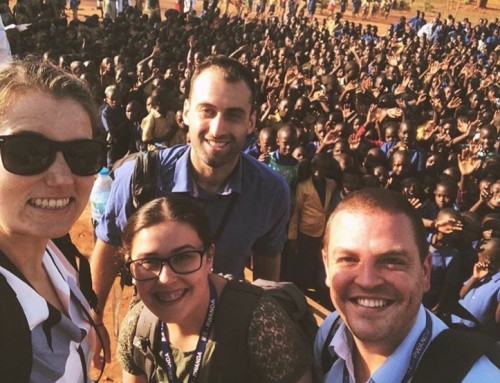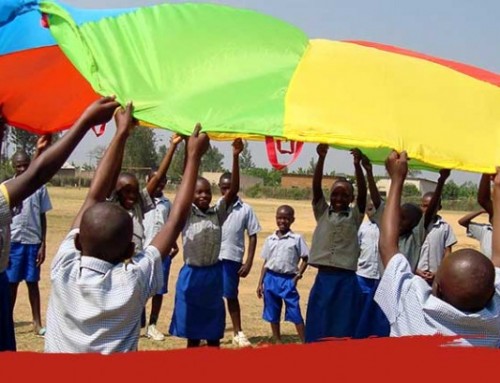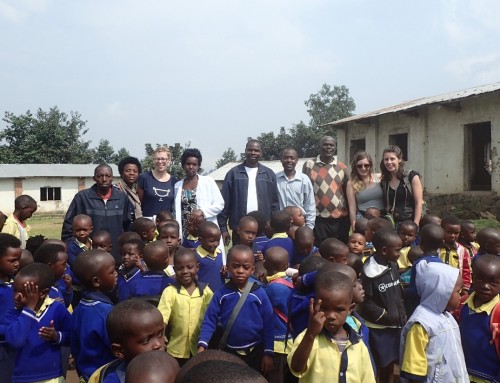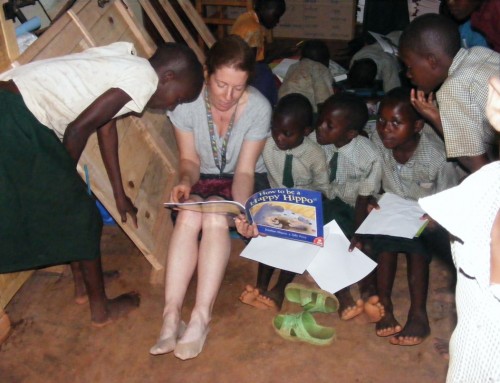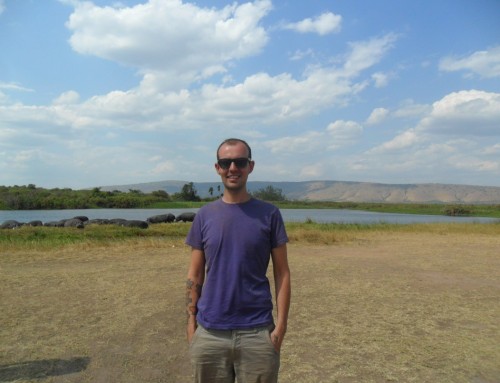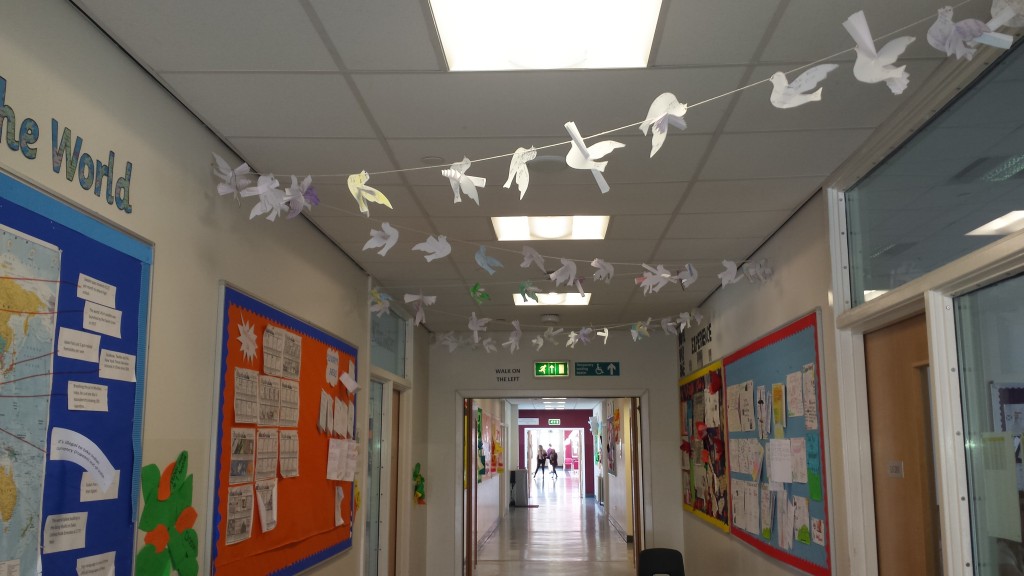
Lesley Kettles, Principal Teacher of Developing the Young Workforce at St Modan’s High School in Stirling, spent four weeks living and working in Kiramuruzi, Gatsibo in the Eastern Province of Rwanda during the summer of 2016. Lesley shares how she took an inter-disciplinary approach to engage her students in global education before she embarked on her summer in Rwanda.
I was pretty intrigued by the GLP opportunity and how creative I could be with it. I’m part of a great learning department; within our faculty we teach social subjects including: Business, History, Geography and Modern Studies, the perfect platform for teaching Learning for Sustainability and global education.
“I was really excited to be accepted as a participant on GLP and what it could mean for me and my students.”
In advance of my placement I wanted to introduce my students and as many of my colleagues as possible, to GLP and my trip to Rwanda. Each year in May we collapse the timetable for a week to deliver SMART (St Modan’s Alternative Radical Timetable) where we provide students with a range of themed learning experiences from across the faculty. This year, working with our S2 students, we dedicated a full day to Learning for Sustainability using Rwanda as a bridge to a broad range of national and international discussions. In planning, I collaborated with every teacher in our department and, together we developed a structured inter-disciplinary programme of activities designed to enlighten and challenge our students.
The day was a great success, delivering an awareness of why we were studying Rwanda and why global awareness is important. We looked at stereotypes, asking students “what do you think of when you think of Africa?” This was a great baseline exercise providing an insight into some very interesting student views. The History department also delivered a lesson on the Rwandan Genocide, helping the students to reflect on the conflict and, most importantly, how Rwandans have moved on to rebuild their country; from this, we then studied the Rwandan flag and what it symbolised. This led us on to the subject of peace and conflict, using current examples such as Syria, to share our views of on why we believed peace is important. The students then went on to create a Corridor of Peace made up of peace doves and placed along the faculty corridor – they are still there today serving as a symbolic reminder of those meaningful discussions.
Using breakfast as a simple example we investigated our inter-connected world, “where does the food come from?” “How reliant are we on other countries just for breakfast?” We also looked into Rwanda’s main exports and how our food budgets compare with those of other parts of the world.
The topic that promoted the most enquiry and debate was Rwandan legislation. We discussed Rwanda’s laws around importing second hand clothing and the implications it has on trade and choice; using a washing line, we asked the students to display if they were for or against this law by pegging their view onto the line. The students were also fascinated by Rwanda’s ban on plastic bags. The students researched recycling and we looked at the resourcefulness of other countries, particularly how toys and balls are created; from here we introduced the plastic bag challenge, asking the students to create skipping ropes from old plastic bags.
A day like this showcased how Learning for Sustainability is applicable in all aspects of the curriculum. It’s a useful project that can tangibly show how it is linked to every subject. There is definitely an interest within St Modan’s High School to do more and I am linking with colleagues who actively want to develop Learning for Sustainability across the curriculum. It will take time, I’m realistic, but for now, I will continue to promote Learning for Sustainability and global citizenship in my students through my own delivery.


